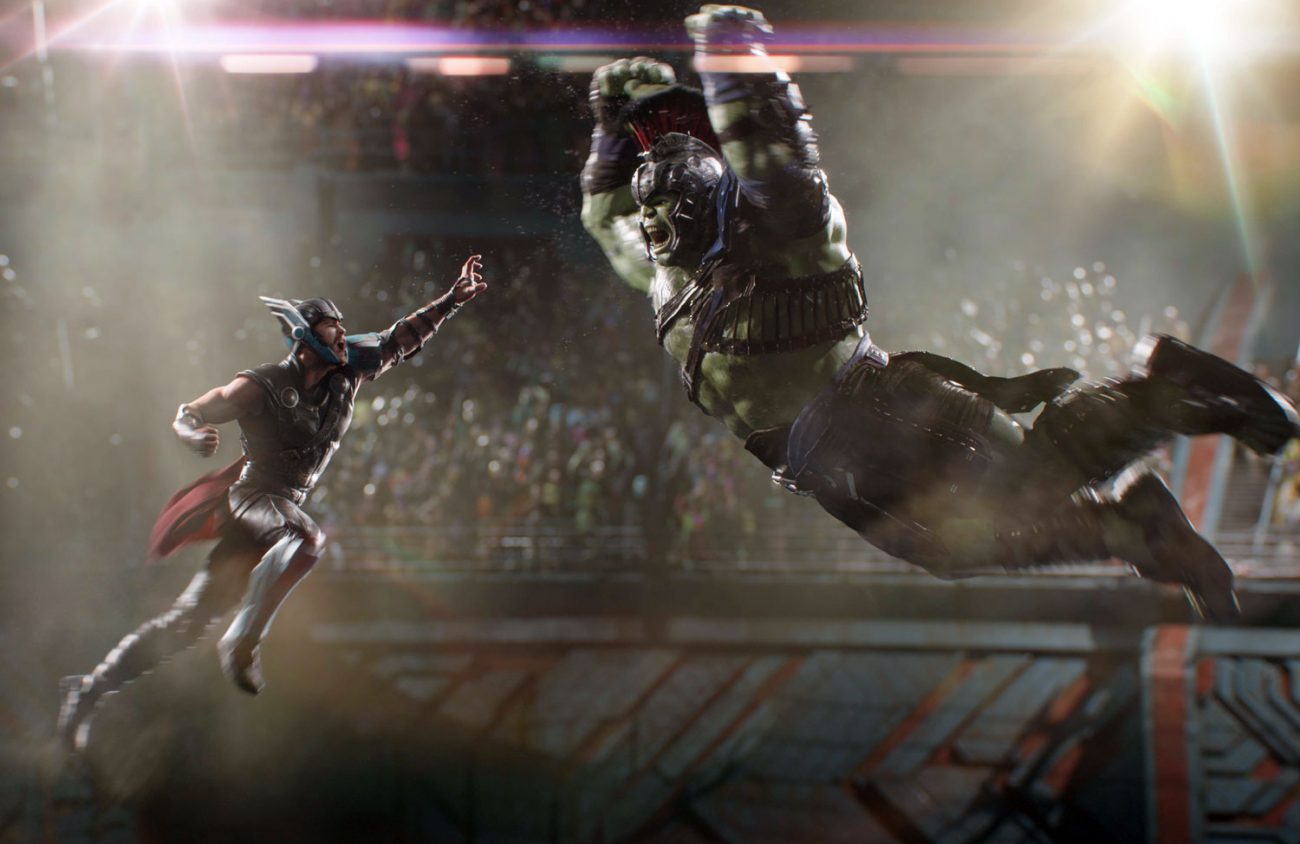In the lineup of Marvel movies, Thor: Ragnarok deserves a lot of superlatives. Best, funniest, most comic-booky; prettiest, smartest, most sincere.
In the same movie, we get the gold-lamé clad Grandmaster (Jeff Goldblum), who could’ve stepped out of an old comic book, and the breathtaking, painterly image of the god of thunder descending on a pile of undead soldiers who look like ambulatory old pennies, their armor a moldy green.
Ragnarok is the end of the world; Ragnarok is what happens when you give a flawed superhero series to a director with a distinct sensibility and let him run with it. Director Taika Waititi is a New Zealander whose résumé includes nothing of this scale (you may have seen last year’s Hunt for the Wilderpeople or the gleefully absurd vampire mockumentary What We Do in the Shadows).
Waititi’s genius is for finding comedy gold in the little interactions between people — the misunderstandings, the callbacks, the connections, the push and pull of disparate personalities.
That’s what’s fueled the patchy Thor movies up until now: the relationship between noble-yet-cocky do-gooder Thor (Chris Hemsworth) and his opportunistic trickster half-brother, Loki (Tom Hiddleston). Kenneth Branagh’s Thor was self-serious and square; Alan Taylor’s Thor: The Dark World was far more forgettable than any movie with space elves should be — but Thor and Loki’s complex version of brotherly love sparkled, regardless.
At the end of The Dark World, Loki secretly took Odin’s place on Asgard’s throne — a fact Thor is only now discovering. But that’s just another brotherly spat next to the arrival of the sister they didn’t know they had. Hela (Cate Blanchett) was key to helping Odin establish his not-so-nice reign across the legendary nine realms, but when she got too violent for his tastes, he banished her. Now she’s back, with a grudge and a love for the old, bloody, imperialistic way of doing things.
Ragnarok is part buddy comedy, part gladiator spectacle, part intergalactic jaunt, part no-seriously-let’s-jam-more-mythology-in-here, part political commentary and part requisite setup for future Marvel endeavors.
But for all the moving parts, the details, the fights and destruction, Waititi gives the most space to the characters, letting them be more than they’ve been before. (And bless him and the writers for bringing in Tessa Thompson’s surly, wonderful Valkyrie.) The loose dialogue, the ad-libbed jokes, the small moments between giant men and fierce women — there’s a looseness to the way Waititi’s characters relate. They seem more like people and less like pieces in an elaborate cinematic puzzle built to sell toys.
They’re also plainly having a lot more fun — but there’s more to this space disco extravaganza than fun. Waititi’s version of this muscle-bound hero has to use his heart as well as his hammer; his version of Asgard is not the shining space palace Thor was raised to believe in.
Ragnarok is a reminder that sometimes the world as we know it needs to end, and that the old ways of doing things, whether in politics or royalty or film, shouldn’t be the only ways.
